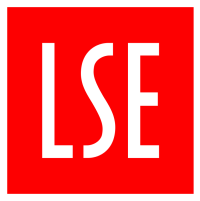- ...
Masters Compare - Find your perfect masters course.


Become part of LSE! Join the Department of Economic History, home to a huge breadth and depth of knowledge and expertise ranging from the medieval period to the current century and covering every major world economy.
Delve into the MSc Financial History programme and gain a unique historical and interdisciplinary insight into the intricate challenges shaping the global monetary and financial system, as well as capital markets. This programme stands at the forefront of financial history studies, offering you an opportunity to grasp the lessons of the past and apply them to the current policy debate in finance and economics.
You’ll benefit from:
Graduate Destinations
Economic history graduates can be found in management and administration in the public and private sectors; banking; journalism; economic consultancy; and library and museum services, to mention just a few.
Find out about the support available to students through LSE Careers and LSE Alumni.
Scholarships and other funding
LSE recognises that the cost of living in London may be higher than in your hometown or country. We make available million of pounds annually in financial aid for our students with both Home and Overseas fee status through a wide variety of scholarships, such as the Graduate Support Scheme, Master’s Awards and Anniversary Scholarships. Around one quarter of our graduate students receive financial support from the School.
At master’s level, the value of support given by LSE ranges in value from 10 per cent of the tuition fee to a full fees and maintenance award.
LSE is ranked fifth in the world for the study of social sciences and management (QS World QS World University Rankings by Subject 2023).
Social Media
UK, EU and International applicants

LSE is stimulating, cosmopolitan and very much part of the “real world”. Why LSE? We offer a unique opportunity to study the social sciences in a uni...